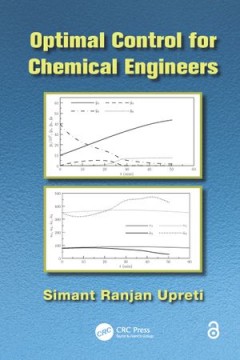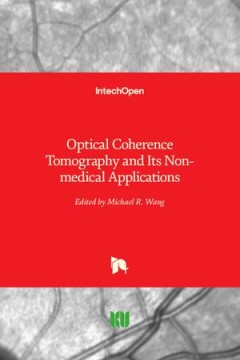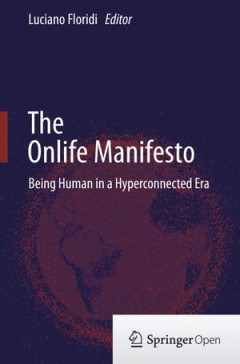Filter by

Women’s Writing from Wales before 1914
This essay collection rediscovers and reassesses a host of still little-known, pre-1914, Welsh women writers.In the last few decades considerable advances have been made towards rediscovering, contextualising, and analysing women’s writing from Wales. The combined influences of the post-1960s women’s movement, the 1990s Welsh devolution successes, and the development of the ‘Four Nations�…
- Edition
- -
- ISBN/ISSN
- 9781000651249
- Collation
- -
- Series Title
- -
- Call Number
- -

Women's Literary Networks and Romanticism: A Tribe of Authoresses
The eighteenth century witnessed the rapid expansion of social, political, religious and literary networks in Great Britain. Increased availability of and access to print combined with the ease with which individuals could correspond across distance ensured that it was easier than ever before for writers to enter into the marketplace of ideas. However, we still lack a complex understanding of h…
- Edition
- -
- ISBN/ISSN
- 9781786940605
- Collation
- -
- Series Title
- -
- Call Number
- -

Women Writing Portuguese Colonialism in Africa
This book represents the first attempt to query the contribution of women as cultural agents to the colonization, the anti-colonial opposition and the decolonization of territories ruled by Portugal in the African continent between the turn of the twentieth century and the early twenty-first. In contrast to the longstanding scholarship on the subject as regards other European empires, the entan…
- Edition
- -
- ISBN/ISSN
- 9781789622317
- Collation
- -
- Series Title
- -
- Call Number
- -

William Warner's Syrinx: or, A Sevenfold History
William Warners Syrinx, or a Sevenfold History, may be the first English novel. Unlike others of the time, though, Warner wrote a realistic novel whose ancestors include the adventure stories of Alexandrine romance, and focus not on the tales of an aristocratic class but on the lives of middle-class individuals. Wallace A. Bacon’s critical edition brings Warner’s important novel –with its…
- Edition
- -
- ISBN/ISSN
- 9780810138230
- Collation
- -
- Series Title
- -
- Call Number
- -

Whose History? Engaging History Students through Historical Fiction
Whose History? aims to illustrate how historical novels and their related genres may be used as an engaging teacher/learning strategy for student teachers in pre-service teacher education courses. It does not argue all teaching of History curriculum in pre-service units should be based on the use of historical novels as a stimulus, nor does it argue for a particular percentage of the use of his…
- Edition
- -
- ISBN/ISSN
- 9781922064509
- Collation
- -
- Series Title
- -
- Call Number
- -

White Field, Black Seeds: Nordic Literacy Practices in The Long Nineteenth Ce…
"White field, black seeds – who can sow? Although the riddle from which this these words are taken comes from oral tradition, it refers to the ability to write, a skill which in most Nordic countries was not regarded as necessary for everyone. And yet a significant number of ordinary people with no access to formal schooling took up the pen and produced a variety of highly interesting texts: …
- Edition
- -
- ISBN/ISSN
- 9789522224446
- Collation
- -
- Series Title
- -
- Call Number
- -

When poetry comes to its senses:* inscribed Roman verse and the human sensori…
Chapter 7 of Dynamic Epigraphy: New Approaches to Inscriptions This volume, with origins in a panel at the 2018 Celtic Conference in Classics, presents creative new approaches to epigraphic material, in an attempt to 'shake up' how we deal with inscriptions. Broad themes include the embodied experience of epigraphy, the unique capacities of epigraphic language as a genre, the visuality of in…
- Edition
- -
- ISBN/ISSN
- 9781789257915
- Collation
- -
- Series Title
- -
- Call Number
- -

What Literature Knows: Forays into Literary Knowledge Production
This volume sheds light on the nexus between knowledge and literature. Arranged historically, contributions address both popular and canonical English and US-American writing from the early modern period to the present. They focus on how historically specific texts engage with epistemological questions in relation to material and social forms as well as representation. The authors discuss liter…
- Edition
- -
- ISBN/ISSN
- 9783631757864
- Collation
- -
- Series Title
- -
- Call Number
- -

What is Québécois Literature? Reflections on the Literary History of Franco…
The question ‘What is Québécois literature?' may seem innocent and answerable, yet Rosemary Chapman's compelling study shows that to answer it is to chart the cultural history of French Canada, to put francophone writing in Canada in postcolonial context and to ask whether literary history, with its focus on the nation, is in fact obsolete. This remarkable book will be compulsory re…
- Edition
- -
- ISBN/ISSN
- 9781846319730
- Collation
- -
- Series Title
- -
- Call Number
- -

A war of individuals: Bloomsbury attitudes to the Great War
This book draws together for the very first time examples of the 'aesthetic pacifism' practised during the Great War by such celebrated individuals as Virginia Woolf, Siegfried Sassoon and Bertrand Russell. In addition, the book outlines the stories of those less well-known who shared the mind-set of the Bloomsbury Group when it came to facing the first 'total war'. The research for this study …
- Edition
- -
- ISBN/ISSN
- 9780719060700
- Collation
- -
- Series Title
- -
- Call Number
- -
 Computer Science, Information & General Works
Computer Science, Information & General Works  Philosophy & Psychology
Philosophy & Psychology  Religion
Religion  Social Sciences
Social Sciences  Language
Language  Pure Science
Pure Science  Applied Sciences
Applied Sciences  Art & Recreation
Art & Recreation  Literature
Literature  History & Geography
History & Geography